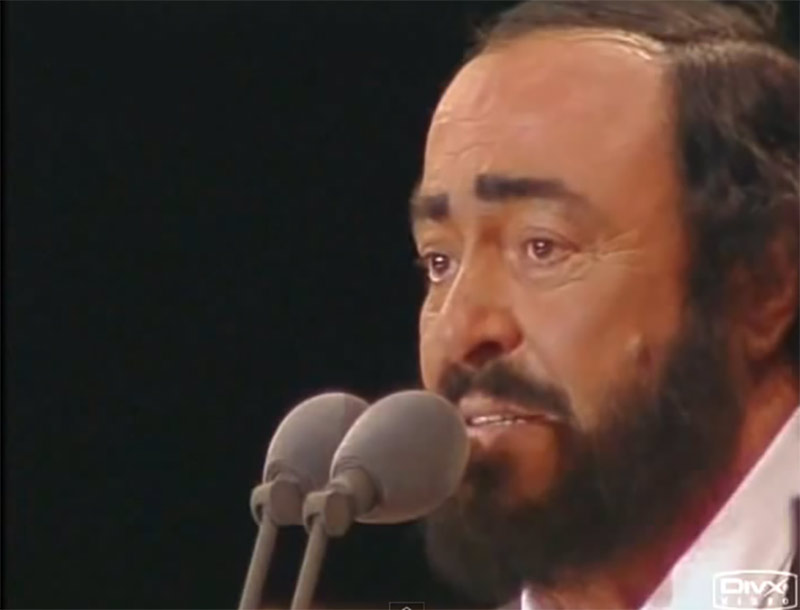In the year 1964, in Moscow, 29-year-old Luciano Pavarotti sings the famous canzone from the beginning of act 3 of Giuseppe Verdi’s opera Rigoletto, “La Donna è Mobile“. He was not “the king” yet.
“La donna è mobile” (The woman is fickle) is the Duke of Mantua’s canzone from the beginning of act 3 of Giuseppe Verdi’’s opera Rigoletto (1851). Composed between 1850 and 1851, Verdi’s Rigoletto is a twisted tale of lust, desire, love, and deceit. The inherent irony is that the Duke, a callous playboy, is the one who is mobile (“inconstant”).
Its reprise towards the end of the opera is chilling, as Rigoletto realizes from the sound of the Duke’s lively voice coming from within the tavern (offstage), that the body in the sack over which he has grimly triumphed is not that of the Duke after all: Rigoletto had paid Sparafucile, an assassin, to kill the Duke but Sparafucile deceived him by killing Gilda, Rigoletto’s beloved daughter, instead.

Related: Pavarotti sings La Donna è Mobile
Italian Lyrics of “La donna e mobile”
La donna è mobile
Qual piuma al vento,
Muta d’accento – e di pensier.
Sempre un amabile,
Leggiadro viso,
In pianto o in riso, – è menzognero.
È sempre misero
Chi a lei s’affida,
Chi le confida – mal cauto il cuore!
Pur mai non sentesi
Felice appieno
Chi su quel seno – non liba amore!
La donna è mobile
Qual piuma al vento,
Muta d’accento – e di pensier,
E di pensier,
E di pensier!
English Translation
Woman is fickle
Like a feather in the wind,
She changes her voice – and her mind.
Always sweet,
Pretty face,
In tears or in laughter, – she is always lying.
Always miserable
Is he who trusts her,
He who confides in her – his unwary heart!
Yet one never feels
Fully happy
Who on that bosom – does not drink love?
Woman is fickle
Like a feather in the wind,
She changes her voice – and her mind,
And her mind,
And her mind!

Related: Pavarotti sings “Caruso”
Sources
- La donna è mobile on Wikipedia